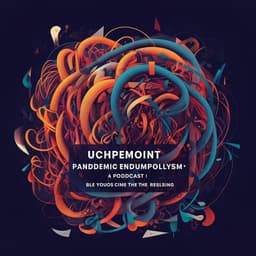
Psychology
How epidemic psychology works on Twitter: evolution of responses to the COVID-19 pandemic in the U.S.
L. M. Aiello, D. Quercia, et al.
This research by Luca Maria Aiello, Daniele Quercia, Ke Zhou, Marios Constantinides, Sanja Šćepanović, and Sagar Joglekar delves into the psychology of public response during the COVID-19 pandemic, uncovering phases of refusal, anger, and acceptance as fear and moralization spread. It highlights how these emotional responses shape societal behavior amidst health crises.
Related Publications
Explore these studies to deepen your understanding of the subject.







